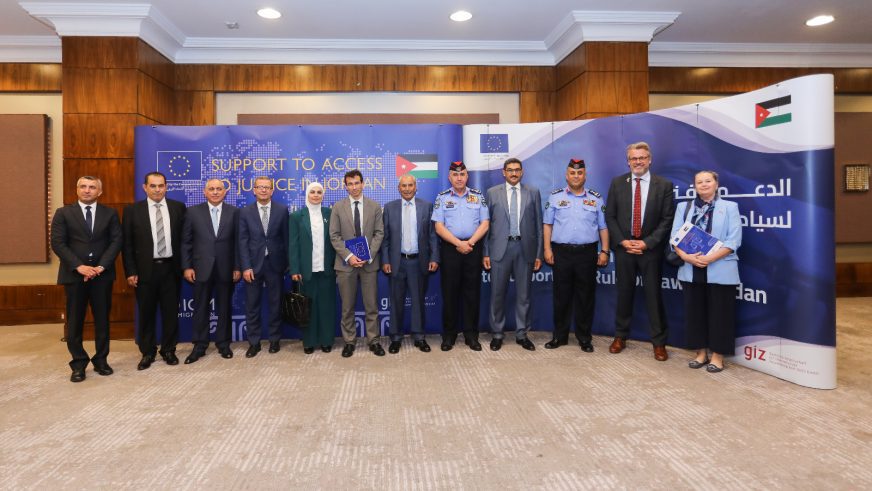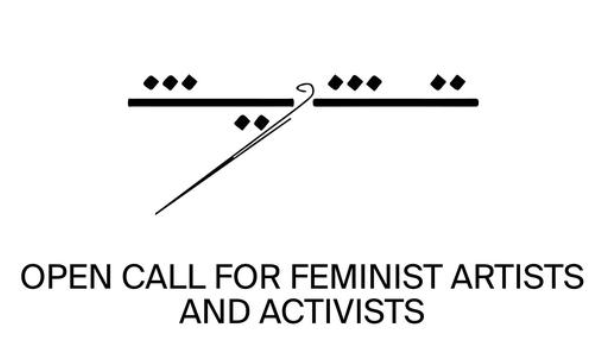Closing Ceremony of the EU-funded “Support to the Rule of Law in Jordan” Programme

The closing ceremony of the European Union funded programme “Support to the Rule of Law in Jordan” was held on Thursday the 18th of May 2023 in Amman and marked the successful culmination of the last two components of the programme: the project “Access to Justice and Legal Empowerment in Jordan: Towards an Effective and Sustainable Legal Aid System” co-funded by the Spanish Agency for International Development Cooperation (AECID) and the project “Strengthening International Cooperation and Mutual Legal Assistance in Criminal Matters, with a focus on Organized Crime and Terrorism in Jordan” implemented by the United Nations Office on Drugs and Crime (UNODC).
The “Access to Justice and Legal Empowerment in Jordan: Towards an Effective and Sustainable Legal Aid System” project was implemented by AECID in collaboration with the Ministry of Justice, the Spanish Bar Council, the National Center for Human Rights, and Dignity in cooperation with Judicial Council and the Jordanian Bar Association. The “Strengthening International Cooperation and Mutual Legal Assistance in Criminal Matters, with a focus on Organized Crime and Terrorism in Jordan” was implemented by UNODC in cooperation with the Ministry of Justice, the Ministry of Interior, the Ministry of Foreign Affairs and Expatriates, the Judicial Council, the General Prosecutor’s Office, the Judicial Training Institute, the Public Security Directorate, the Criminal Investigation Department/Cybercrime Unit, the Arab International Bureau (Interpol Office in Jordan/NCB), the State Security Court, the Jordan Bar Association, and the Anti-Money Laundering Counter-Terrorist and Financing Unit. The projects undertaken as part of the programme have had a profound impact on the rule of law, access to justice and ensuring the protection of rights and freedoms for all.
The project “Access to Justice and Legal Empowerment in Jordan,” co-funded by the Spanish Agency for International Development Cooperation (AECID), has focused on improving the legal aid system in Jordan. The project has supported amendments to the Legal Aid Bylaw, resulting in an increased number of vulnerable people who can apply for legal aid services and improved procedures. An automated mechanism for delivering legal aid, based on lists of lawyers assigned on rotation to provide specialized services, has been implemented in courts and prosecutors’ offices throughout the Kingdom. Additionally, a National Survey on Access to Justice and Legal Aid needs has been completed, and strategies on Legal Aid and Communication of the Justice Sector have been developed to further improve the system. Extensive training has been provided to legal operators, including judges, prosecutors, and Ministry of Justice (MOJ) staff from all across Jordan, ensuring their enhanced expertise. The project has also successfully implemented national campaigns aimed at raising awareness of access to justice and legal aid.
The “Strengthening International Cooperation and Mutual Legal Assistance in Criminal Matters, with a focus on Organized Crime and Terrorism in Jordan” project implemented by UNODC supported Jordan on several levels. At the legislative level, UNODC supported the authorities in the drafting of the National Law on International Judicial Cooperation. The draft law has been concluded and shared with the authorities to be presented to parliament. At the technical level, the project has supported the Ministry of Justice, the General Prosecution Office, the Cybercrime Unit under the Criminal Investigation Department, and the State Security Court through a series of specialized capacity building activities in the fields of countering money laundering, parallel financial investigations, Trafficking in Persons, cybercrime, amongst other subjects. At the operational level, the project has advanced institutional capacities through the development of software and IT solutions for relevant institutions as part of the digital transformation vision of the Government and the Justice Sector Strategy.
The event concluded with a sense of accomplishment and recognition of the collective efforts made by all stakeholders involved, further solidifying the commitment to upholding the rule of law in Jordan.





























 Syria
Syria 




